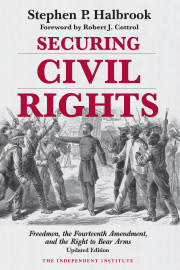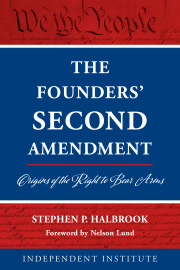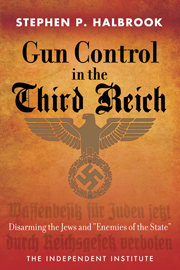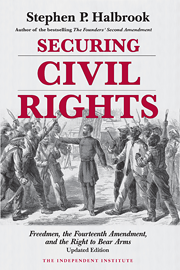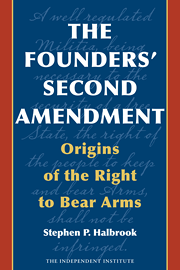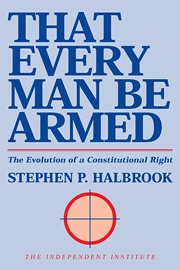Emily Gets Her Gun ... But Obama Wants to Take Yours
By Emily Miller
Regnery, $27.95, 384 pages
After the Supreme Court declared the District’s handgun ban violative of the Second Amendment in 2008 in District of Columbia v. Heller, D.C. officials decided to get revenge. Under prior law, rifles and shotguns could be legally registered. If it now had to register handguns, D.C. would make it as difficult as possible to register any firearm.
I represented Dick Heller, Absolam Jordan and others in bringing a lawsuit against the new onerous restrictions. We challenged the requirement that one must register to exercise a constitutional right. D.C. argued that by making unregistered guns illegal, police could arrest folks even when they didn’t have anything else on them.
The U.S. Court of Appeals didn’t see that as a legitimate reason and sent the case back to the trial court.
That decision came down on Oct. 4, 2011. By coincidence, the very next day, a woman named Emily Miller walked into the D.C. police headquarters and asked how she could get a gun permit.
She had been the victim of a home invasion and simply wanted to protect herself. She had no training with firearms and, while having extensive experience in political work and the media, she had not been concerned with Second Amendment issues.
Little did she know that she was now face-to-face with a bureaucracy entrusted with the function of implementing one obstacle after another, for a total of 17 steps, to allow a person to register a gun. This really meant 17 steps to dissuade a person from registering a gun.
The result of the trials and tribulations that followed prompted the book Emily Gets Her Gun ... But Obama Wants to Take Yours. However one feels about gun control, this book is a lively read that combines humor and irony with serious commentary.
While those of us who are lawyers discuss how rights may be violated in briefs and arguments, walk with a real person who is only trying to exercise a right to protect herself from criminals but is impeded with mounds of paperwork, bureaucratic runarounds, mounting expenses and requirements to receive training from unknown persons.
Make no mistake, if a major portion of a book can be written on how hard it is to acquire a gun legally, don’t kid yourself into thinking that countless citizens who are otherwise law-abiding do not possess unregistered firearms in D.C.
Those who are poor and live in crime-ridden neighborhoods simply do not have the resources, time or know-how to register a gun. For them, the dilemma regarding whether to have an unregistered gun is reduced to who is feared the most: the thugs on their street who might rob, rape or kill them, or the police who don’t come around much, but might arrest them for an unregistered gun?
“Emily Gets Her Gun” is at its best in describing D.C.’s Alice-in-Wonderland, schizophrenic gun laws. Some police love to arrest tourists when they ask where they can store their guns before entering a building, veterans who call a hotline for help and are then confronted by a SWAT team and anyone found with just an empty shell casing, which is defined as “ammunition.”
But that statement must be qualified—some good cops on the beat advise crime victims to get a gun, knowing full well that the D.C. laws are stacked against the good guys and gals.
The book also covers topics where many others have trod, from the myth of universal background checks, pejoratively named “assault weapons,” media bias, school-marm New York Mayor Michael R. Bloomberg and the deception of the U.N. arms treaty.
Even so, fresh perspectives are offered, which may be attributed to the “consciousness raising” of a crime victim who just started out only wanting to get a gun to protect herself, but whose frustrating experiences quickly morphed into a broad understanding of how governments at every level may seek to repress the fundamental right to have arms for defense of self, family and a free state.
Not surprisingly, there is a chapter titled “Barack Obama, the most successful gun salesman in history.” That award previously went to Bill Clinton, whose signing of the Brady Bill and the “assault weapons” ban, now expired, motivated citizens to buy more firearms than ever before in American history.
While President Obama is far more radical than Mr. Clinton on the issue, he has had no success in getting bills passed in Congress, although he is trying his best with executive diktats. But justifiable fear of what Mr. Obama would like to do has sent gun sales to record highs.
If the book’s subtitle asserting that “Obama Wants to Take” your gun sounds like a cliche, just consult Appendix A, a secret 2013 Justice Department memo stating that gun-control policies cannot be implemented without a ban on many firearms and the registration of those that are not banned, which would allow even the latter to be confiscated.
Mr. Obama just hasn’t had the votes in Congress to support his clear agenda, which he expressed as an Illinois and a U.S. legislator, to ban guns.



